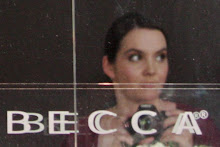More Polish tips for beginners
Actually, my shiny new red IKO book doesn't say beginner anymore, I am now (drumroll) a 'low intermediate' (pause for incredulous gasps). I know!
They've notched it up another level now. None of this pussyfooting around with instrumental and accusative cases, we're getting down to the seriousness that is locative. Oh yes. We brushed past this case in the beginner course; for example when you say you live in Warsaw, you say 'mieszkam w Warszawie.' See what happened? Warszawa changes into Warszawie. Why? Don't ask stupid questions, this is Polish, you have to learn to accept the unexplainable.
Anyway, you use the locative in a variety of bizarre situation, the latest of which I learned is if you are talking about something. I mean if you want to say 'I often talk about politics' one way of putting it is 'często dyskutuję o polityce' (polityka changes to polityce). Are you still with me?
This is obviously one of those things that has been invented for the sole purpose of tripping up foreigners. It doesn't really follow obvious rules and word endings change in a variety of ways in the locative case (-ta to -cie; -ść to -ci; -ła to -le to name but a few). Apparently it's 'intuitive'. Honestly.
A fellow student of mine was first to fall victim to the locative case. He wanted to say 'rozmowiała o kanapie' ('she was talking about a sofa') but actually came out with 'rozmowiała o kanapce' ('she was talking about a sandwich'). I don't expect you to understand, but to the rest of us, struggling to accept this new complication to a language already bulging with peculiarities, it was incredibly amusing.
links to this post
They've notched it up another level now. None of this pussyfooting around with instrumental and accusative cases, we're getting down to the seriousness that is locative. Oh yes. We brushed past this case in the beginner course; for example when you say you live in Warsaw, you say 'mieszkam w Warszawie.' See what happened? Warszawa changes into Warszawie. Why? Don't ask stupid questions, this is Polish, you have to learn to accept the unexplainable.
Anyway, you use the locative in a variety of bizarre situation, the latest of which I learned is if you are talking about something. I mean if you want to say 'I often talk about politics' one way of putting it is 'często dyskutuję o polityce' (polityka changes to polityce). Are you still with me?
This is obviously one of those things that has been invented for the sole purpose of tripping up foreigners. It doesn't really follow obvious rules and word endings change in a variety of ways in the locative case (-ta to -cie; -ść to -ci; -ła to -le to name but a few). Apparently it's 'intuitive'. Honestly.
A fellow student of mine was first to fall victim to the locative case. He wanted to say 'rozmowiała o kanapie' ('she was talking about a sofa') but actually came out with 'rozmowiała o kanapce' ('she was talking about a sandwich'). I don't expect you to understand, but to the rest of us, struggling to accept this new complication to a language already bulging with peculiarities, it was incredibly amusing.







4 Comments:
The joys of the cases. It gets worse when you're using adjectives coz they, of course, have to agree in number, gender, *and* case.
It's things like that that caused me to abandon all hope of ever speaking Polish and to become an itinerant pro-bono English teacher (read lazy schmuck who hangs out in bars).
Nine months after I arrived in Poland, I was lucky if, when I tried to communicate in Polish, the person behind the counter didn't get totally offended and throw potatoes at my head. I didn't even pretend that they'd understand me.
My theory is that the changing of the words in different cases has to do with prepositions which have double meanings. For example, "na" can mean "for" or "on". Thus, "Poszedłem na kanapkę" (accusative case), means I went for a sandwich, where as "Poszedłem na kanapce" (locative case) means I walked on the sandwich. I also have a theory that the existence of all of these cases has to do with the lack of articles such as "the" and "a" in Polish, as well as with its word order, which can be mixed and matched according to your needs, rarely affecting the meaning.
Have you gotten into aspects yet? That's a good one. There are only two - with a past, present and future in one, and a past and a future in the other. Except for verbs of motion - then you have to take into account repeated action... ;-)
As difficult as it is, I love this language, and I'm glad I speak it. If you power on through this difficult stuff, I promise it will get easier and easier.
And by the way, did you know that 2006 is the year of Polish language?
Can they do that? Just *declare* a whole year, the year of the Polish language? And what does it mean? How can you back up that kind of claim??
Is the year of Polish language going to recur, like say, the year of the Horse? How frequently would it do so?
Post a Comment
<< Home